Contact UsCONTACT
Please feel free to contact us if you have any questions or concerns.
Inquiry FormStories
STORIES
SERIES EMBARK
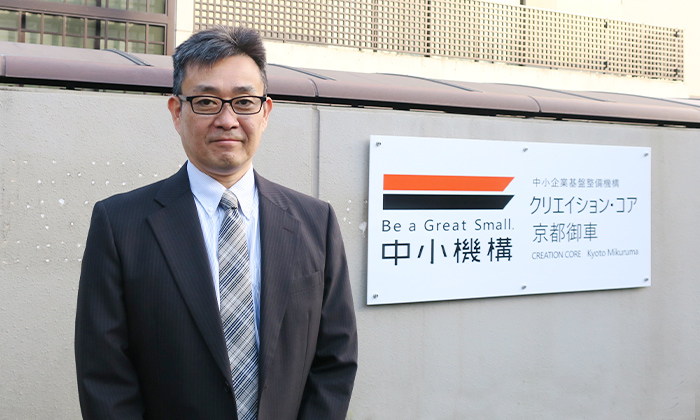
Using patient-derived iPS cells, SCAD is developing drugs to treat intractable diseases for which there is no established treatment. SCAD was established in May 2014 to develop such "iPS drug discovery" business. The company is developing disease model cells that reproduce disease conditions at the cellular level using iPS cells created from patients' blood, and has begun searching for drug candidate compounds that utilize these disease model cells. There are approximately 7,000 diseases worldwide that are considered intractable, and in Japan, 333 diseases are designated as intractable. Of these, SCAD is currently engaged in research and development for Charcot-Marie-Tooth disease (CMT), an inherited peripheral nerve disease. We asked CEO Kensuke Kato about where the company's business is today and the future vision it is aiming for. (Interviewer: Sae Ito)
As a researcher and engineer in mechanical engineering, I originally worked in research and business development at the National Institute of Advanced Industrial Science and Technology (now the National Institute of Advanced Industrial Science and Technology), a national research institute, and Hitachi, Ltd. While working as a researcher and engineer, I initially thought that the most important task was to create the "world's first" or "world's top" technology. However, I have experienced time and again that such technologies developed with great effort do not always succeed as a business. Rather than simply aiming for the "world's first" or "world's top" technology, it is more important to have a management and strategy to make the newly created value practical and viable as a business. I felt this way. With this in mind, I decided to shift my specialty to technology management.
While at Hitachi, Ltd., I studied management by assuming a position responsible for income and expenditures as a design section chief, participating in an in-house graduate school program to train the next generation of managers, and attending a management graduate school myself to gain further expertise. Later, he established a Tokyo Institute of Technology venture specializing in commercialization management of cutting-edge technologies. Through his activities there, he met Professor Norio Nakatsuji, Professor Emeritus of Kyoto University, who currently serves as SCAD's Director and Chief Advisor.
At the time, Dr. Nakatsuji was the founding director of the Institute for Integrated Cell-Material Sciences (iCeMS) at Kyoto University, and we had several opportunities to discuss the commercialization of the stem cell technology he was researching there. We agreed that "in order to put stem cell-related technologies to practical use and contribute to society, it is necessary to establish a venture company and work toward commercialization, rather than limiting ourselves to research activities at the university," and together we decided to establish SCAD.
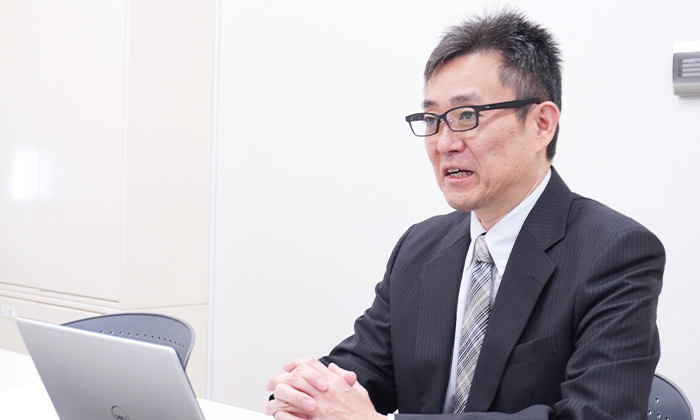
SCAD aims to explore drug discovery using iPS cells. Specifically, SCAD hopes to contribute to the research and development of drugs for intractable diseases through (1) the development of disease model cells by generating iPS cells from patients' blood and (2) the development and provision of a drug discovery evaluation system to determine drug efficacy using disease model cells.
(For (1), first, iPS cells are generated from the patient's blood. By inducing (transforming) these iPS cells into cells such as nerve and muscle cells, which are the target of the disease, it is possible to create disease model cells that reproduce the state of the disease at the cellular level. Then, drug candidate substances are administered to the disease model cells to conduct the drug discovery process described in (2). The goal is to search for and identify drugs that improve pathological conditions, including "drug repositioning," in which a new drug effect is found from a therapeutic drug that is already known to be effective for a specific disease and used as a therapeutic drug for another disease, and then to license out the drug to a pharmaceutical company, with the eventual goal of having the drug approved as a therapeutic drug.
In conducting business using human blood-derived components, we have received specific certification and business accreditation from the Ministry of Health, Labour and Welfare and the Cabinet Office based on the National Strategic Special Area Act. In other words, we are the only company in Japan that has been certified to commercialize the process of creating disease model cells from patient blood-derived iPS cells and conducting drug discovery.
To date, no cure exists for 95% of intractable diseases. This is because it is difficult to obtain samples for drug discovery research due to the small number of patients, the fact that it is not easy to collect samples from, for example, nerves, and animal models have not necessarily been developed. These issues can be solved by utilizing iPS cells. Genes in the blood of patients with rare genetic diseases contain information about the disease. Since iPS cells can be cultured in large quantities, it is possible to generate a large number of disease model cells from iPS cells and evaluate the efficacy of thousands of candidate compounds by administering them to patients. The iPS cells can be cultured in large quantities.
Currently, in collaboration with Kyoto Prefectural University of Medicine, we are conducting research and development for Charcot-Marie-Tooth disease (CMT), the most common hereditary peripheral neuropathy. CMT is a nerve disorder that causes atrophy of the muscles in the limbs due to degeneration of the myelin sheath and axons. It is estimated that there are approximately 2.8 million patients worldwide, but there is still no effective treatment. So far, we have created iPS cells from the blood of five patients and developed disease model cells that reproduce the pathological condition. We are now preparing to apply for a patent for the technology to evaluate drug efficacy. As a result, we have identified a substance that showed signs of efficacy at the cellular level, although it is still in the research stage. We are also preparing to file a patent application for the use of the substance. We are planning to proceed with a non-clinical study as a candidate substance to see if it can be utilized as a treatment method in the future.
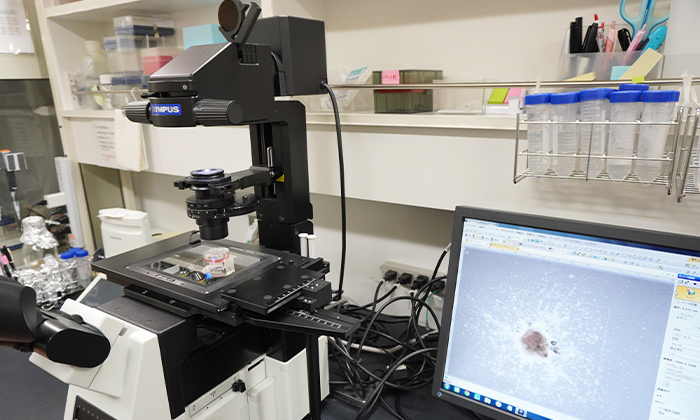
A female patient once told us, "I am hesitant to get married because CMT is a genetic disease. If a cure was developed, I would definitely consider marriage. This made me even more determined to move forward with this project as soon as possible. In addition to this, we often receive comments from patients and their families asking if there is anything they can do to help and expressing high expectations for our efforts.
In addition to neurodegenerative diseases such as CMT, we intend to expand our iPS drug discovery business to muscle diseases and neuromuscular junction diseases. In addition, we are also looking at overseas expansion to countries such as the U.S., where preferential treatment for research and development of rare diseases is well established.
The most difficult task was to obtain credit. In the early days of our establishment, we started from a difficult situation where we lacked all management resources, including human and financial resources, as it was difficult to get investments and grants from venture capitalists. We continued our activities, albeit on a small scale, and when we were recognized as an A-rank venture by Kyoto City and selected for a development grant by Kyoto Prefecture, venture capitalists began to pay attention to us and we were able to receive investment. Once we received the investment, we were able to hire human resources and began to accelerate our business. This led to increased credibility, including selection as a Regional Future Leading Company by the Ministry of Economy, Trade and Industry (METI) and recognition as a business in a National Strategic Special Zone by the Cabinet Office and the Ministry of Health, Labour and Welfare. If you sincerely deal with each and every event from the early stage of starting a business and accumulate them, you will gradually accumulate credibility. We believe that this is a basic stance that cannot be omitted even by venture companies that are in a hurry to grow. In addition, Kyoto University Innovation Capital (Kyoto-iCAP), including Capitalist Hiroyuki Ueno, has a deep understanding of the drug discovery business and has helped us greatly.
SCAD was one of the first investments for Kyoto-iCAP. after the Lehman Shock in 2008, there was a strong windfall for venture companies until around 2016. Against this backdrop, Mr. Kato established SCAD, and as a pioneer of venture companies originating from Kyoto University, which have been increasing in number in recent years, he must have gone through considerable hardship. Thanks to the activities of people like Mr. Kato, I feel that the way people look at venture companies has changed over the past five years.
From the moment you start a business, no doubt, you will face many challenges. Nevertheless, please set goals that are significant and valuable enough to society and actually take action. You will make friends with similar ideas. What I value is to increase the number of such friends and to be sincere. A venture company cannot grow alone, nor can it survive on its own. It is important to have the people around you as allies and to have their support. For this reason, I believe it is important to be sincere in our approach to business, results, and the people we come in contact with.
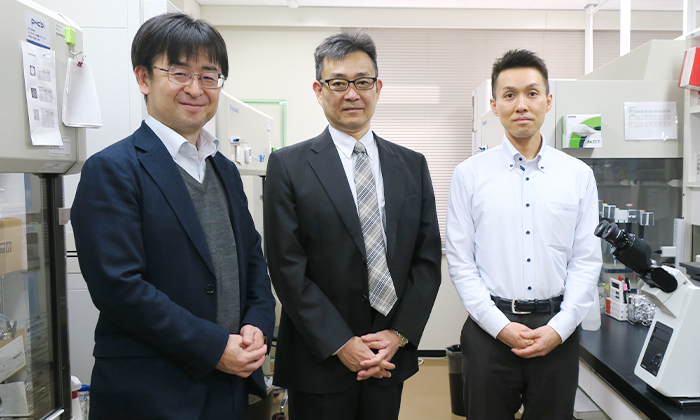
(Interviewed in November 2021. Affiliations, positions, etc. as of the time of the interview)
Stem Cell & Device Institute, Inc. (SCAD) specializes in the generation of iPS cells from patients' blood and the generation of pathological models of nervous system and muscle cells from those iPS cells. SCAD's research and development, carried out with the cooperation of patients, is expected to contribute to understanding the pathology of diseases for which no treatment is available and to the development of therapeutic drugs. Kyoto-iCAP believes that the SCAD initiative will contribute to the creation of new treatment options for patients suffering from intractable diseases in the future.
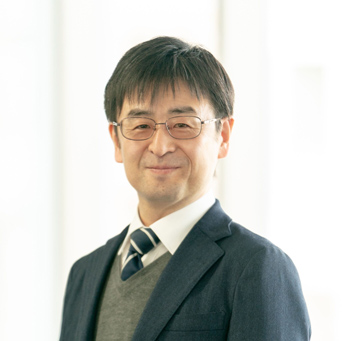
Hiroyuki Ueno

Stem Cell & Device Laboratory Inc. website
Please feel free to contact us if you have any questions or concerns.
Inquiry Form